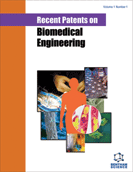Abstract
Many tissue engineering constructs comprise scaffolds with spatially homogenous properties that have uniformly seeded populations of cells. The broadly uniform morphologies of such constructs do not reflect the complexity of the tissues they are designed to emulate, limiting their application for future clinical goals. In order to begin to address this limitation, a range of technologies have been developed that are better able to replicate tissue architecture. These technologies show significant potential but are at a relatively early stage of development and a number of significant challenges need to be overcome before such techniques can be developed into effective clinical products. This review will discuss the basic principles of these technologies and the patterning applications that have been developed to date with reference to the patent literature. Consideration will also be given to potential commercialisation strategies for both patterning platforms and patterned constructs which they are used to produce.
Keywords: 3D Patterning, 3D Printing, Bioplotting, Bioprinting, Cell Patterning, Fused Deposition Modelling, Fused Filament Fabrication, Microinjection, Micromanipulation, Multiphoton Lithography, Optical Tweezers, Rapid Prototyping, Selective Laser Sintering, Solid Freeform Fabrication, Stereolithography, Tissue Engineering
 47
47

